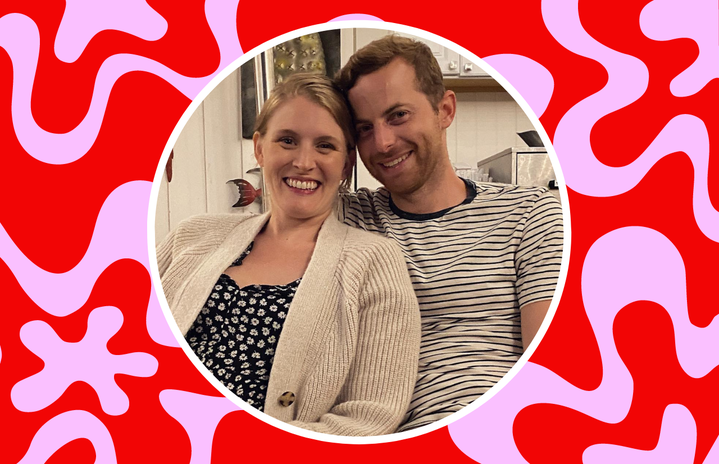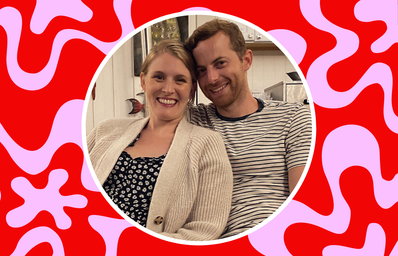With Maroon 5’s lead singer Adam Levine having been exposed two weeks ago for allegedly cheating on his pregnant wife with Instagram model Sumner Stroh, and YouTubers The Try Guys releasing a statement last week that Ned Fulmer will no longer be working with them after he had an affair with co-worker Alex Herring, it’s been difficult to avoid the TikTok and Twitter memes – and relentless stream of gossip – about these two men and their infidelity. In situations of celebrity drama such as these, reactions across the internet range from extreme anger to immediate crafting of memes, which dangerously toe the line between hilarious and hideously out of touch, and it’s often forgotten that these situations impact very real people, with very real relationships. Amidst the internet storm of jokes, criticism and TikTok exposés about these two cheating scandals, questions about the politics of celebrity relationships and how we, as onlookers, interact with them are inevitably raised.
We all have celebrities that we keep tabs on more than others, whether that be the likes of the Kardashians; musicians or actors; or more low-level influencers on YouTube or TikTok – but what does our obsession with celebrity relationships, and the drama surrounding them, say about our perception of people in the spotlight? How much do we lose touch of the fact that celebrities are still humans, who we don’t actually know on a personal level, who have the power do inherently bad things?
Ned Fulmer rose to fame for being a part of The Try Guys (Keith Habersberger, Zach Kornfeld, and Eugene Lee Yang and, until this month, Fulmer), a group of producers for the YouTube channel Buzzfeed, who, like the name of their group would suggest, try out different things and film them for the channel. As The Try Guys rose to fame, they each became individually popular for different reasons. Fulmer, in particular, became characteristically known for his relationship with his wife, Ariel, which fans idolised as – to use the only apt internet term – #couplegoals. In fact, Fulmer’s marriage became a pivotal part of The Try Guys and their perception on the internet, fans viewing them all as relatable, genuine people, who also lead very normal lives outside of the internet. The Try Guys left Buzzfeed in 2018, starting up their own company (2nd Try LLT) and their fanbase loyally followed them. Recently, however, fans began noticing Fulmer being missing from recent videos released by The Try Guys, and speculations started to circulate about why. It wasn’t long before photos of Fulmer and his co-worker, Alex Herring, surfaced and, within the next few days, The Try Guys announced that they will no longer be working with Fulmer. Fulmer promptly released this statement on Instagram, addressing the situation:
Similarly to Fulmer, Adam Levine has been known to publicly gush about his relationship with his wife, Behati Prinsloo, and how much he loves being a married man. Shortly after Prinsloo announced that her and Levine are expecting their third child, Instagram model Sumner Stroh posted a TikTok alledging that she and Levine were “seeing each other for about a year” and that, after she “stopped talking to him over a period of months”, he messaged her shockingly asking for her permission to name his unborn child, which Prinsloo is obviously carrying at the moment, after Stroh herself. As you can imagine, the world has been absolutely horrified at the notion of a married man approaching his alleged mistress and asking to name his baby after her – it truly is a reprehensible thing to get your head around. Since then, other people have come forward with screenshots from Instagram alledging that Levine has approached them too. Although Levine has denied the allegations, he did say on his Instagram story that he “crossed the line during a regrettable period in [his] life” and ‘to be this naive and stupid enough to risk the only thing that truly matters to [him] was the greatest mistake [he] could ever make”.
Interestingly, in most articles or social media posts about Levine’s alleged infedility and the situation surrounding it, the first thing mentioned about his wife is that she is a Victoria’s Secret model. Even in Stroh’s TikTok where she first accused Levine of the affair with her, she mentioned straight away Levine’s wife’s occupation. This immediate focus in the media on Prinsloo’s physical beauty, affiliated with being a Victoria’s Secret model, undermines her autonomy as a wife, mother and – above all – a woman. Fundamentally, by focusing on Prinsloo’s success as a model, for arguably the most famous lingerie brand in the world, gives the impression of the world saying: “Oh, but his wife is so beautiful! She’s a Victoria’s Secret Angel – why would he ever cheat on her?” Rethinking the way we discuss women in situations like this one is pivotal in not reducing them to their outward appearance. It begs the question, if Prinsloo was not as conventially attractive, or not a model, would her occupation be focused on when discussing her husband’s infidelity?
In any case, both of these recent situations have been so utterly shocking because of the way Fulmer and Levine have presented themselves as family men and, over time, publicly shaped their image to portray this ‘perfect family’ front. With Fulmer, in particular, it was an actual part of the brand he built and subsequently financially capitalised on. It goes to show that, no matter how much we think we know the characteristics and personalities of celebrities, we are shown only a minuscule part of their lives. Comparitive to the way in which scrolling through Instagram only shows you the ‘best’ parts of people’s lives – which they choose to publicly share online – it’s easy to forget that our relationship with celebrities and public figures is parasocial in it’s very nature. In The Try Guys recent podcast ‘ok, let’s talk about it. – The TryPod Ep. 181’, in which Zach Kornfield and Keith Habersberger address the situation with Fulmer in more detail, Kornfield actually talks about this notion of our parasocial interactions with public figures and offers some solace to the fans listening:
“[…] it feels like a death, not in that traumatic of a sense, but of a loss of something that you loved and you thought you knew and now it is forever – potentially forever – tainted […] I think that you are valid and okay to feel sad about this, even though these are not people that you knew in real life. I know that the word parasocial’s been thrown around a lot, and then some people have tried to make you feel bad for having that parasocial attachment to begin with – you’re allowed to care about the content you watch and you’re allowed to care about us if we’ve had an impact on your life”
So, although our obsession with celebrities, their lives and their relationships distances us from the fact they are intrinsicly human, with real human flaws, is it really that bad how invested we get? It is important to consider your position as an audience member, whether that be watching content from the likes of The Try Guys, or listening to Maroon 5’s songs, that the relationship is not balanced – and times like these certainly do that. We will never truly understand or know the lives of the celebrities we keep tabs on and, though I’m sure some are more genuine than others, the person we perceive them as may be entirely different to the reality of what they are like. Either way, for anyone interested in pop culture, or a fan of either Levine or The Try Guys, these past few weeks have certainly been an unwelcome wake-up call in realising how separate we truly are from the people we look up to.


